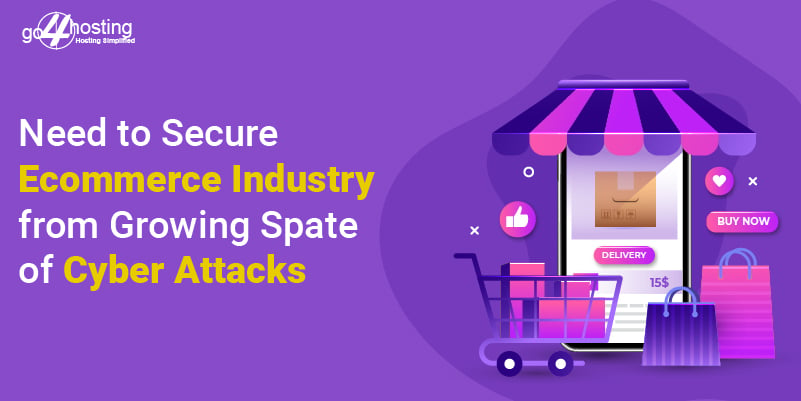Need to Secure Ecommerce Industry from Growing Spate of Cyber Attacks

Every business needs to be protected from some kind of threat. While brick and mortar shops can adopt sophisticated CC-TV monitoring and other measures, e-commerce ventures need an entirely different approach for implementation of security measures.
Growing security needs of online businesses
If you look at the exponential growth of online businesses and their huge popularity. The security of online businesses needs to be understood by prospective customers as well as operators and retailers.
In the present context, every online business irrespective of its size is equally exposed to security risks. Most of the owners of small and medium sized online enterprises think that cyber criminals would only choose large ecommerce businesses. However, cyber criminals view all targets as equal opportunities.
The very fact that all functions of an online business are executed via internet makes it highly vulnerable to online attacks by hackers and spammers. This also necessitates adoption of stringent security measures to prevent customers from becoming victims of cyber crimes.
This underlines the need to proactively safeguard multiple aspects of an ecommerce business to provide a sense of security to the clients and also to prevent online fraud, which can adversely impact future business growth. Past surveys consistently reveal that botnets are the top tool fraudsters use to seize vast control over e-commerce operators’ massive computer networks.
By adopting proactive preventive measures, ecommerce enterprises can retard the rate of abandonment due to lack of customer-trust. As such, there are no foolproof measures to identify fraudulent purchases.
Vital trends that drive online businesses
There is an ever increasing need to deal with eCommerce related frauds including brute attacks, fraudulent online transactions, fictitious logins and applications that relate to new accounts. There are few significant trends that should be considered while analyzing cybercrime vectors.
App stores and smartphones – More and more online shoppers seem to be inclined towards a select group of online retailers. They also feel more secure in conducting transactions such as online payments that require sharing of personal information, passwords, and bank account details to name a few.
Smartphones have emerged as the most sought after means to make online purchases of virtually every type of product. Smartphone-associated login transactions in leading e-retailers are exponentially growing and are accountable for fifty percent of total volume.
Cyber attacks reflect the growth of ecommerce – The new trend of increased cyber attacks during peak sales months, including the festival and holiday season, underlines the fact that cyber criminals have not only targeted online businesses but have also succeeded in designing their own strategies. The attackers are usually after high-value online transactions by targeting login and payment processes.
Extensive and persistent bot attacks –Cybercriminals are on a relentless hunt, using bot attacks to test and validate stolen identity credentials. In fact, they generate so much bot traffic that it dwarfs genuine transactions. These attacks are also evolving in terms of sophistication to dodge the detection measures. This makes them immune to advances in security measures and confirms the fact that both attacks are here to stay.
Authentication measures
Ecommerce operators and online businesses actively embrace authentication despite rampant cyber attacks, recognizing its value. These methods establish online transaction legitimacy, giving both customers and sellers peace of mind. Sellers extensively use digital security certificates to reassure clients they are not dealing with unauthorized third-party vendors.
In order to prevent interference of third party elements, the ecommerce industry has always counted on SSL certificates. Businesses actively adopt such measures to secure credentials and responsibly handle sensitive information.
Ecommerce Security – Way Forward
Every online merchant needs to spend quality time validating the security measures that are in place to protect the entire process of buying from online intruders. Ideally, they should view these processes from the buyer’s perspective.
Customers will instantly abandon your ecommerce site if their browser fails to identify a server that uses an SSL certificate. To enhance security, we propose a standard checklist guaranteeing smooth communication between SSL servers and browsers.
Selection of a trusted web host is an extremely critical aspect of securing your online business. Don’t compromise on security! Choose a reputable host and let them actively manage your security concerns with advanced systems and meticulous practices.
Implementation of preventive measures much before the business goes online is an important factor in establishing flawless security. One can also educate customers to exercise care while transacting online. These measures are essential to guarantee a healthy growth of the ecommerce industry.





